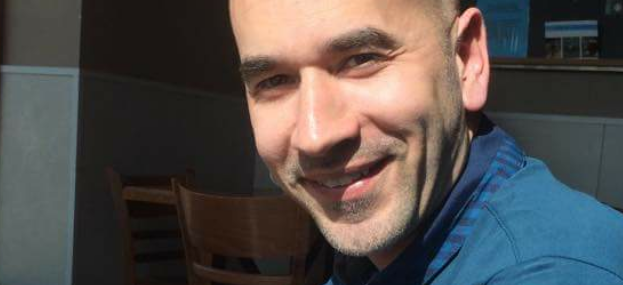Richard’s story
Richard attended a focus group to help further enhance physiotherapy services after an accident left him with a painful shoulder injury.
I suffered a minor accident at a work away-day and dislocated my shoulder. I went to hospital straight after the injury, but it didn’t heal properly and the joint was popping in and out of place for months, especially during the night. It was very painful and it really affected my life. I worried it would re-dislocate when I was helping my daughter carry her school things, or when we went shopping. Getting dressed was difficult, because it was more likely to happen if my arm was at a certain angle, and it was really hard to sleep because I had to be careful not to lie on the injured side.
My consultant at Trafford General Hospital was great. He really emphasised that it was no trouble at all for me to phone him up if I was having problems, so I gave him a ring to explain what was going on. After further tests, he recommended surgery. Everything went really quickly and I was in theatre in no time.
One thing that had impressed me throughout my experience was how the staff made me feel very involved in my care. Rather than just telling me what to do and when to come back, they asked me what I thought would be helpful, and for feedback on how much their treatment was benefiting me. I was really keen to give back to them in any way I could, and to keep the quality of service high for other patients, so I agreed to attend a focus group on a new technology the team are testing out.
The device is a computer game that senses your movements, and by playing it you are completing physiotherapy exercises that would get a little boring and dry otherwise. I did physiotherapy the more traditional way, but I did find that work or chores got in the way sometimes and I would find myself cutting my exercises short.
I think the game’s a great idea because an exercise routine becomes a lot more interesting if it appeals to your competitive nature, and I think people will do their physiotherapy for longer periods of time if a computer is telling you when to start and finish, rather than relying on your own willpower.
Taking part in the focus group was a really rewarding experience for me, because I felt my input was valued by the researchers and would go towards service improvements in the future. I would definitely encourage others to get involved in research. It allows you to give something back to those who have helped you, make care even better for future patients, and to feel that patient experience is at the heart of the NHS.
The Exergame technology Richard tested is an innovation led by Mr Bibhas Roy, Consultant Orthopaedic Surgeon at Trafford Hospitals, part of Central Manchester University Hospitals NHS Foundation Trust (CMFT). The device is being developed in partnership with software company Mira Rehab, as part of a Manchester Integrating Medicine and Technology (MIMIT) project, in collaboration with TRUSTECH, and part-funded by The CMFT Charitable Fund for Innovation.




